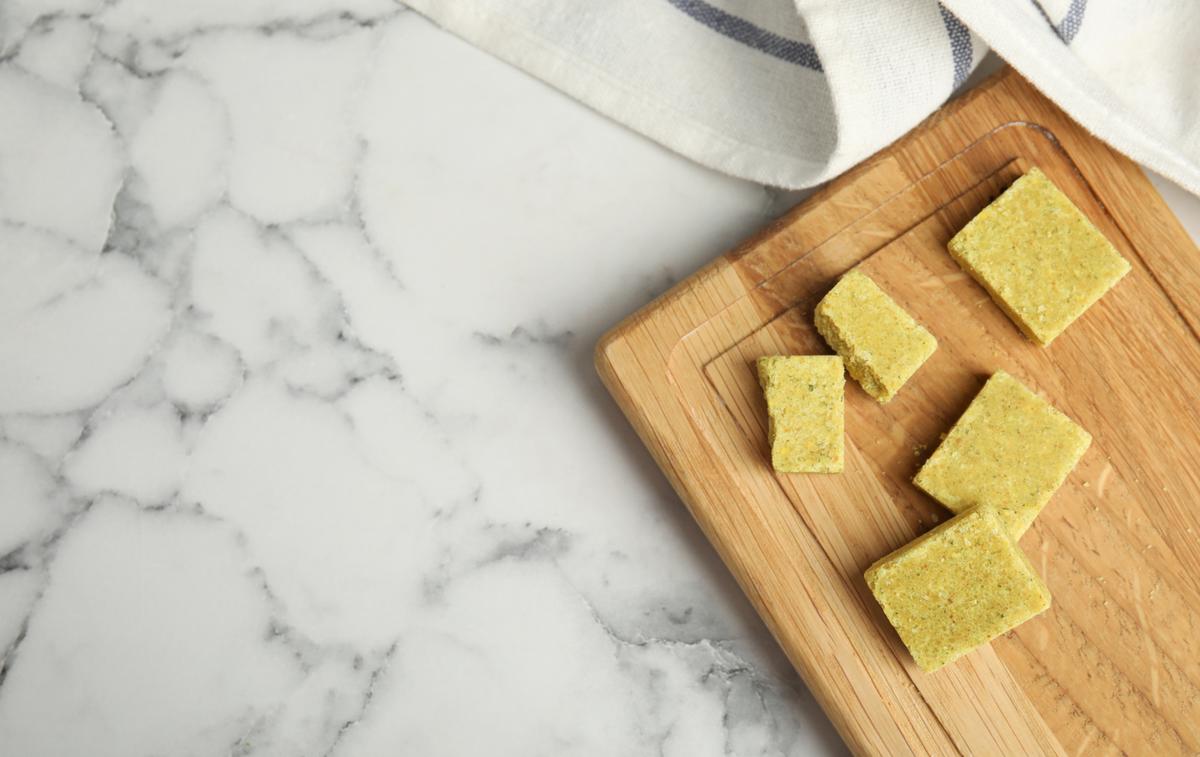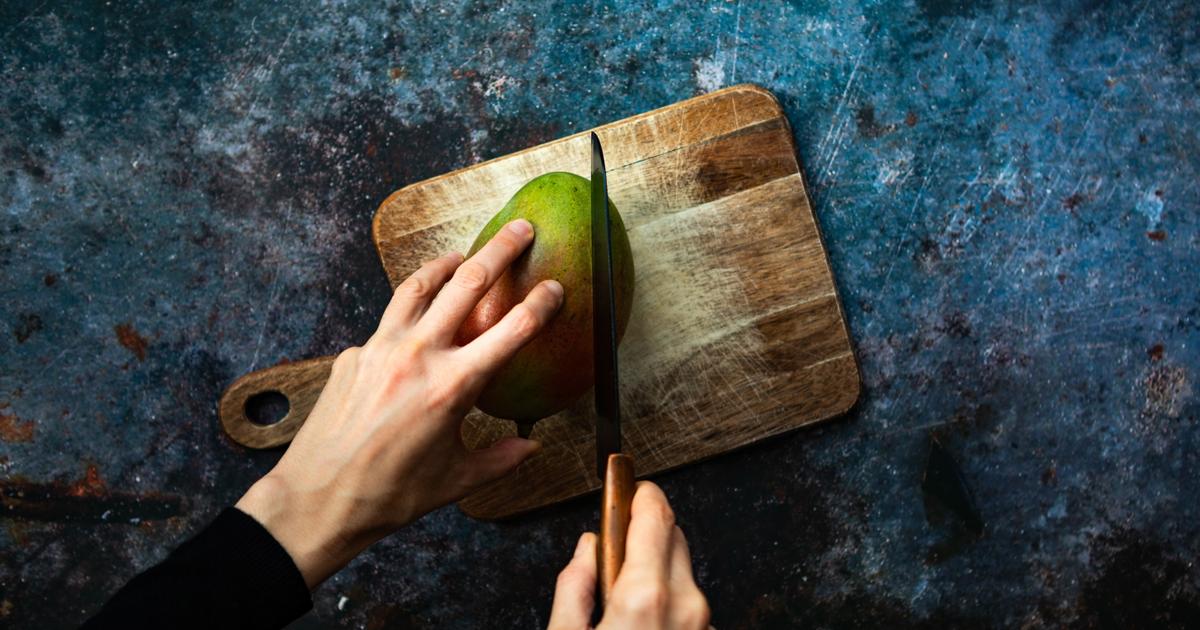A minimum of preparation for a maximum of taste.
That's the promise of Dehydrated Bouillon Cubes.
Popularized in the 1880s by the Swiss Julius Maggi, this concentrate of herbs and vegetables, with or without animal protein (poultry or beef), is a reference, even a reflex when it comes to flavoring without too much efforts soups, stews or sauces.
Only the industrial version is far from being as virtuous as the house recipe (carrot, onion, leek, celery branch, bouquet garni and bone).
Depending on the ingredients used and the method of preparation, its consumption is not without risk.
Read also »
Tips for reading food labels and ingesting fewer additives
Zero nutritional interest
Do not look for any health interest in the dehydrated broth, “there is none”, immediately slices Dr. Jean-Michel Lecerf, head of the nutrition and physical activity department at the Pasteur Institute in Lille.
“In terms of fiber and vitamins, we are very far from what a broth or homemade soup can provide, he continues.
It is an ultra-processed food whose only role is to bring flavors to the preparation.
It is for this reason that the cube contains mostly salt.
This ingredient will also "extend the shelf life and avoid any microbiological development in the product packaging", adds François Buche, teacher-researcher in food science and technology at the LaSalle Institute in Beauvais.
For physico-chemist Raphaël Haumont, salt also acts as a “bulking agent”, in other words a substance to increase the volume of the cubed broth, without increasing its energy value.
And "increasing the weight also increases the price per kilo," he points out.
In video, the three rules of a healthy diet
Only, salt, that's the whole problem.
After having tested the composition of 34 references of dehydrated stock cubes sold commercially, our colleagues from the magazine
60 million consumers
complained in October 2020 (1) of their high salt content.
It's simple, for half of the products, the broth already covered more than 25% of the daily salt intake recommended by the World Health Organization (5 g per day).
So many reasons not to salt your dish again after adding an aromatic cube, insist the specialists.
As a reminder, “a diet that is too salty leads, among other things, to the risk of high blood pressure, strokes and stomach cancer,” recalls Dr. Jean-Michel Lecerf.
Hidden sugars
In its survey,
60 million consumers
also highlighted the presence of sugar in the cubes, mentioning the addition of sucrose and glucose syrup.
A dry matter called “support”, and whose role is “to accompany the aromas and to erase the bitterness of the preparation”, specifies François Buche, teacher-researcher in food sciences and technologies.
Read also »
"Sucrez vos fraises", the Instagram account that reveals the hidden sugar in food
If this sugar intake is low, the physico-chemist Raphaël Haumont warns all the same: "it is one of those hidden ones that we ingest unconsciously and which contribute to strengthening the appetite for sugar", nuances the specialist of molecular cuisine.
Hence his call for moderation.
A threat to the environment?
To compact the salt, the sugar and the plant or animal extracts of the bouillon cube, the agri-food sector uses a vegetable oil.
In its columns, the magazine
60 million consumers
denounces the use of palm oil.
Solid at room temperature, this saturated fatty acid improves texture and prevents the product from melting.
However, compared to its sisters such as rapeseed, sunflower or coconut, palm oil is “more problematic from an environmental point of view”, recalls Dr Jean-Michel Lecerf.
Because of it and its intensive exploitation, forests and their animal species are threatened, as NGOs and environmental experts have deplored for several years.
Additives on the harness
If vegetable broths do not contain any additives, this is not the case for their animal version.
Thus, to reproduce the coloring obtained by a meat cooking juice, manufacturers add dyes to the small cube.
Some use ordinary caramel pigments (E150A), obtained naturally after thermal degradation of sugars.
Others use more controversial dyes.
“The use of those enriched with ammonia (E150C) or ammonium (E150D) raises questions because their chemical reaction can create a molecule classified as “possibly carcinogenic” by the International Agency for Research on Cancer, underlines François Buche, teacher- food science and technology researcher.
And for the time being, they are still authorized by the European health authorities.
The flavor enhancers present in the animal version are also singled out.
This is the case of sodium glutamate (E621), a product resulting from fermentation and acclaimed for its umami flavor (the fifth primary flavor, fleshy and persistent in the mouth).
In November 2021 and after analysis, the Belgian consumer association Test Achats, pointed out that this additive was "associated with the "Chinese restaurant syndrome" which manifests itself in the form of headaches, nausea, feeling of oppression at the level chest pain and flushing of the face.
“No suspicion of impact on health has been confirmed, comments François Ruche, teacher-researcher in food science and technology.
But as a precautionary measure, the health authorities recommend an acceptable daily dose of 30 mg of glutamate per kg of body weight.
In case of detected sensitivity to the additive, the nutritionist Jean-Michel Lecerf advises to listen to yourself and if necessary, to restrict its consumption.
Gastronomic trend of winter, we go to broth
Winter trend, everything is good in broth!
Tomato broth, chicken or beef bone broth, hot and sour broth, with his new book, Fern Green introduces us to the world of detox in the hot broth (and soup) version… A
post-holiday
must-have !
Green Soups
, Fern Green, €10.90, Marabout, www.marabout.com.
Marabout press photo
Winter trend, everything is good in broth!
Les Bouillons
, the work of chef William Ledeuil, should be a landmark in the world of cooking.
There are basic recipes to be made according to the most classic rules and variations full of creativity.
We love the “sweet broth” section.
Bouillons
, William Ledeuil, €35, Editions de La Martinière, editionsdelamartiniere.fr.
Press photo La Martiniere
Winter trend, everything is good in broth!
Gourmet version, broths are parading this winter.
They are often poured onto the plate in front of the customer.
At Ginger in Paris, for example, it's a lemongrass, star anise and cinnamon broth that washes down a steamed bar.
At SaQuaNa in Honfleur (photo), the monkfish is covered with a broth…
SaQuaNa press photo
Winter trend, everything is good in broth!
… coconut, coriander, lovage, lime.
Result: an exhilarating fragrance that awakens the taste buds of the guests to start the tasting menu of this Michelin-starred restaurant on the Normandy coast.
www.alexandre-bourdas.com
SaQuaNa press photo
Winter trend, everything is good in broth!
Winter trend, everything is good in broth!
Winter trend, everything is good in broth!
Winter trend, everything is good in broth!
Winter trend, everything is good in broth!
Winter trend, everything is good in broth!
Winter trend, everything is good in broth!
See the slideshow
11 pictures
Dilution and homemade
In conclusion, rather than demonizing the bouillon cube, Dr. Jean-Michel Lecerf suggests reviewing its use.
“In order not to fall into excessive consumption, we limit the frequency and the quantity used, he assures.
Depending on the guests and the taste, we can further dilute a stock cube in two liters rather than one, four liters rather than two…”
If you have little time to cook, there are also other alternatives to easily approach the taste notes of a bouillon cube.
“We can make our own bouquet garni based on thyme, bay leaf, onion, cloves and salt, suggests physico-chemist Raphaël Haumont.
And the must remains the addition of a stalk of celery for its salty and vegetal flavor.
The editorial staff advises you
The secret of the Okinawa diet, the food popular with Japanese centenarians
Everything that dehydrates you on a daily basis (without you realizing it)
Dessert creams and chocolate mousses: the rare products "saved" by "60 million consumers"







